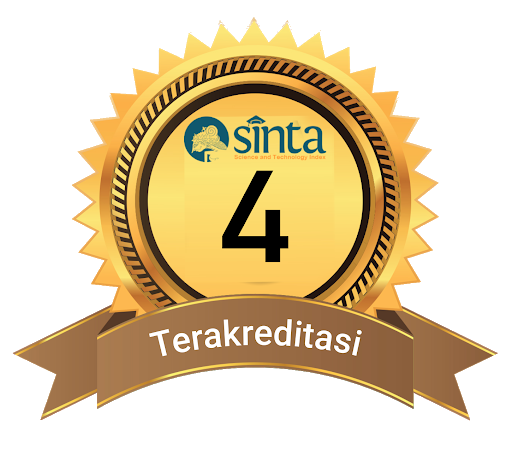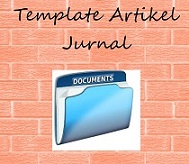Deviation of Qicblat Direction at Mosque/Musala in Deli Serdang District, North Sumatra
Abstract
Qibla direction calibration is one of the ijtihadi efforts to maximize the order to face the Qibla, especially in the implementation of prayer services. The phenomenon of the direction of the mosque/mushalla building which is often not facing the Qibla is one of the proofs that the problem of facing the Qibla is not considered so important by the Muslim community, especially in Deli Serdang Regency. Because of that, breaking the ice about the meaning and understanding of facing the Qibla must be optimized supported by science and technology studies, one of which is by conducting research to check the accuracy of the Qibla direction, especially in Deli Serdang Regency. This research is seen from its kindfield (field research) and its nature is mixed (mix research) because the data obtained incount and then measure (quantitative) then look for information about who measured the Qibla direction in that place (qualitative). The findings obtained from this study are that the average Qibla direction of mosques/mushalla buildings in the city of Deli Serdang Regency has a deviation of 14 0 31 ‘20.51”. This research was conducted in order to maximize the prayer service orders in terms of facing the Qiblah both in syar’i and in applications in order to achieve the perfection of the prayers performed.
Keywords
Full Text:
PDFReferences
Aldjanabi, W., Dahou, A., Al-qaness, M. A. A., Elaziz, M. A., Helmi, A. M., & Damaševičius, R. (2021). Arabic Offensive and Hate Speech Detection Using a Cross-Corpora Multi-Task Learning Model. Informatics, 8(4), 69. https://doi.org/10.3390/informatics8040069
Alfiyanto, A., Hidayati, F., Riyadi, I., & Batin, M. H. (2023). Implementation of Active Learning-Based Arabic Learning at Muhammadiyah 5 Palembang Senior High School. Al-Hijr: Journal of Adulearn World, 1(3), 162–170. https://doi.org/10.55849/alhijr.v1i3.511
Allam, Z., & Dhunny, Z. A. (2019). On big data, artificial intelligence and smart cities. Cities, 89, 80–91. https://doi.org/10.1016/j.cities.2019.01.032
Alwehaibi, A., Bikdash, M., Albogmi, M., & Roy, K. (2022). A study of the performance of embedding methods for Arabic short-text sentiment analysis using deep learning approaches. Journal of King Saud University - Computer and Information Sciences, 34(8), 6140–6149. https://doi.org/10.1016/j.jksuci.2021.07.011
Anshory, M. I., Nailurridho, M. A., Alfiana, N., Hanifah, H., & Asti, R. A. (2023). Efforts to Improve Religious Attitudes Through the Habit of Dhuha Prayer at Mts Nu Tirto Pekalongan. Al-Hijr: Journal of Adulearn World, 2(1), 54–65. https://doi.org/10.55849/alhijr.v2i1.535
Apriliawati, D. (2020). Diary Study sebagai Metode Pengumpulan Data pada Riset Kuantitatif: Sebuah Literature Review. Journal of Psychological Perspective, 2(2), 79–89. https://doi.org/10.47679/jopp.022.12200007
Bai, Sun, Zang, Zhang, Shen, Liu, & Wei. (2019). Identification Technology of Grid Monitoring Alarm Event Based on Natural Language Processing and Deep Learning in China. Energies, 12(17), 3258. https://doi.org/10.3390/en12173258
Baiduri, R., Khairani, L., & Puspitawati, P. (2019). Multicultural Education Based on North Sumatera Folkloreas a Source of Character Building in Early Childhood. Proceedings of the Proceedings of The 5th Annual International Seminar on Trends in Science and Science Education, AISTSSE 2018, 18-19 October 2018, Medan, Indonesia. Proceedings of The 5th Annual International Seminar on Trends in Science and Science Education, AISTSSE 2018, 18-19 October 2018, Medan, Indonesia, Medan, Indonesia. https://doi.org/10.4108/eai.18-10-2018.2287422
Balaha, H. M., Ali, H. A., Saraya, M., & Badawy, M. (2021). A new Arabic handwritten character recognition deep learning system (AHCR-DLS). Neural Computing and Applications, 33(11), 6325–6367. https://doi.org/10.1007/s00521-020-05397-2
Binti Jasni, N. S., & Ardiansyah, A. A. (2020). Arabic Learning Based On E-Learning Using Arabic Teacher Website In The Pandemic Era Of Covid-19. Ta’lim al-’Arabiyyah: Jurnal Pendidikan Bahasa Arab & Kebahasaaraban, 4(2), 122–137. https://doi.org/10.15575/jpba.v4i2.8601
“Educational Research and Evaluation” Yogyakarta State University, Nabilah, N., Ulwiyah, S., “Educational Research and Evaluation” Yogyakarta State University, Rifqiyah, F., “Educational Research and Evaluation” Yogyakarta State University, Pusporini, W., & “Educational Research and Evaluation” Yogyakarta State University. (2023). Trend Research Sustainable Developments Goals in Indonesia within ASEAN Nations from 2015 to 2023: A Bibliography Analysis. Materials of International Practical Internet Conference “Challenges of Science,” 259–270. https://doi.org/10.31643/2023.33
Ellah, B. O., & Achor, E. E. (2023). Students’ Learning Outcome in Physics: Predictive Power of Split-Half Attention and Dual-Processing in Working Memory. Al-Hijr: Journal of Adulearn World, 2(1), 12–24. https://doi.org/10.55849/alhijr.v2i1.534
Fanani, I. Y. (2023). Efforts of Islamic Religious Education Teachers in Shaping the Personality of Muslim Students at SDIT Insan Utama Kasihan. Al-Hijr: Journal of Adulearn World, 2(1), 41–53. https://doi.org/10.55849/alhijr.v2i1.533
Gultom, E. S., Frans, A., & Cellay, E. (2023). Adapting the Graphic Novel to Improve Speaking Fluency for EFL Learners. Al-Hijr: Journal of Adulearn World, 1(2), 60–70. https://doi.org/10.55849/alhijr.v1i2.514
Hambali, H., Nurlaili, N., Marzuki, M., Hayati, H., & Ashlan, S. (2023). The Effect of Self-Efficacy and Learning Innovation on Teacher Performance. Al-Hijr: Journal of Adulearn World, 2(1), 25–40. https://doi.org/10.55849/alhijr.v2i1.536
Hendra, R., Jamilus, J., Dogan, R., & Gugler, T. K. (2023). Job Analysis Urgentity (Task) in Islamic Education. Al-Hijr: Journal of Adulearn World, 1(2), 71–83. https://doi.org/10.55849/alhijr.v1i2.518
Imran, A., Posokhova, I., Qureshi, H. N., Masood, U., Riaz, M. S., Ali, K., John, C. N., Hussain, M. I., & Nabeel, M. (2020). AI4COVID-19: AI enabled preliminary diagnosis for COVID-19 from cough samples via an app. Informatics in Medicine Unlocked, 20, 100378. https://doi.org/10.1016/j.imu.2020.100378
Kamorudeen, B. (2021). The Impact of Information and Communication Technology on the Teaching and Learning of Arabic in Nigeria. Journal of Muslim Minority Affairs, 41(4), 608–614. https://doi.org/10.1080/13602004.2022.2029011
Lumbantoruan, J. H., Dane, G., & Mahyar, B. (2023). Comparison of Mathematics Learning Outcomes with Student Team Achievement Divisions and Team Assisted Individualization Model. Al-Hijr: Journal of Adulearn World, 1(3), 181–193. https://doi.org/10.55849/alhijr.v1i3.522
Luqman, H., & Mahmoud, S. A. (2019). Automatic translation of Arabic text-to-Arabic sign language. Universal Access in the Information Society, 18(4), 939–951. https://doi.org/10.1007/s10209-018-0622-8
Musa, M. M., Annur, A. F., Khusna, S., & Kusumawati, P. R. D. (2023). Steam Content in Integrated Science Learning Model Project Based Learning (PjBL) In Madrasah Ibtidaiyah. Al-Hijr: Journal of Adulearn World, 2(2), 97–107. https://doi.org/10.55849/alhijr.v2i2.540
Nupiah, A., McCulley, W., & He, T. (2023). The Implication of Students’ Psychological Aspects on Learning Difficulties Experienced by Students in Learning in School. Al-Hijr: Journal of Adulearn World, 1(3), 148–161. https://doi.org/10.55849/alhijr.v1i3.520
Oyewole, A. S., Toriola, A. K., Adebayo, A. A., Shabi, S. O., & Edith, I. O. (2023). The Adoption of Mobile Technology for Learning in Public Universities in Ogun State, Nigeria. Al-Hijr: Journal of Adulearn World, 1(4), 242–260. https://doi.org/10.55849/alhijr.v1i4.527
Pertiwi, U., Khuzaini, N., Beneditha, B., Cristin, A., & Clara, F. (2023). I Mind Map Application Needs Analysis to Improve Students’ Mathematical Concept Understanding Ability. Al-Hijr: Journal of Adulearn World, 1(4), 206–216. https://doi.org/10.55849/alhijr.v1i4.530
Putri, N. E. (2023). Digital Literacy of Students at PTKIN in Aceh. Al-Hijr: Journal of Adulearn World, 2(2), 127–135. https://doi.org/10.55849/alhijr.v2i2.543
Susanto, F., Khan, A., Deng, C., & Cardinal, K. (2023). Cybernetic Thinking: Serealist and Wholist Style as An English Grammar Problem Solving Learning Perspective During a Pandemic. Al-Hijr: Journal of Adulearn World, 1(4), 261–279. https://doi.org/10.55849/alhijr.v1i4.532
Yunita, R., Safrizal, S., & Komalasari, E. (2023). Analysis of Students’ Difficulties in Determining the Main Idea in Reading Texts in Class V. Al-Hijr: Journal of Adulearn World, 2(2), 81–96. https://doi.org/10.55849/alhijr.v2i2.538
DOI: http://dx.doi.org/10.31958/jeh.v8i2.7863
Refbacks
- There are currently no refbacks.
Copyright (c) 2023 Dhiauddin Tanjung Tanjung

This work is licensed under a Creative Commons Attribution-NonCommercial 4.0 International License.
El-Hekam Indexed By:















